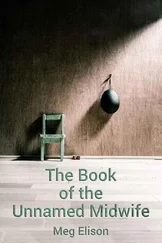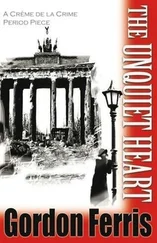A man came occasionally to visit him. He entered the hospital room pulling behind him a portable oxygen tank. On days he found Tim asleep, the man departed. On days Tim was awake but mute and unalert, he was no good to the man. Much later he was breathing on his own again, which was more than the man could say for himself. Many tubes had been affixed to Tim with flesh-colored tape. The man stood over him.
“Do you remember me?” he asked.
The world was blurry. He couldn’t harden his focus on the man any further. He slowly shook his head.
“It’s been a long time,” said the man. He looked Tim over. “And you’ve been through one hell of a something.” The man pulled a chair up to the bed and sat down next to him.
“What about him?” he asked. The man produced a photograph and held it above him, as steadily as his hand would allow, to give him a good look. “Recognize him?”
He stared at the photograph, trying to make sense of it. The shapes and colors bled into one another and into the room and his focus began to wobble and fade and before he could answer he was asleep again.
The man sat back in the chair and sighed. He returned the picture to his suit coat and removed from the same pocket a business card. He turned the card over and jotted down his cell phone number. Then he realized there was no good place to set the card. The room was bare but for a small table affixed to the wall beside the bed. He decided to leave one there and to put another in Tim’s sleeping hand. Then he walked out of the room, pulling his oxygen behind him.
He sat unhurried, not easily distracted, as if he had no plans or set arrangements and life was only a profligacy of time. It was a little past midday in Tompkins Square Park and other such men were on similar benches strung along the footpaths, unafraid to fritter away the day’s frugal hours with the mildest curiosities.
Becka had brought her baby to meet his grandfather for the first time. It was an unplanned pregnancy but one that had given her mother a great deal of joy in a short amount of time, and Becka was grateful for that. She was curious about how he would react. She had gotten used to the idea that he would never return, would never meet her son, because he had not sent an email in months. He had given up, she thought, or he had died trying to reach her mother before she did, and in neither of those instances did she know how to find him, or how to be angry, or how to mourn. She went days and weeks without thinking of him at all, and on those occasions she did think of him, it was with an abstract sadness that transmuted disappointment, concern, and compromised love into a final resignation that as far as fathers were concerned, this — silence, mystery — was all life would have to offer her.
She stopped when she saw him. She moved off beside a tree under which a terrible pink fruit lay trampled, fouling the air. Jack was in the carrier, facing forward, and suddenly he moved his arms and legs in synchronicity while letting out a little squeal. She smoothed his pale hair as she stared into the distance.
It was sad to see her father so docile and inexpressive, and so thin. Much thinner than he had been when she saw him in Portland. He had explained in a totally unexpected email that he had been in the hospital a long time and now he was out, but he gave no specifics, made no inquiries, and requested nothing. She had had to arrange this meeting, though he chose Tompkins Square Park, where now, under a linden tree swiftly shedding leaves in the wind, he sat, as unremarkable a feature of the city as the park bench. She found herself lingering. She needed a moment to take him in so that she could greet him with a familiarity that would not betray any trace of the pity that had pierced and then repulsed her when he first came into view.
Jack was still doing a noisy dance of the limbs when she approached and yet her father didn’t turn at the sound of her footsteps or their sudden halt nearby. “Daddy?” she said. He turned to her then, and in the long seconds that passed before he said it, she believed he had forgotten her name.
He had lost his way somewhere. He had forgotten why he had pushed and pushed to come so far. It seemed to him just another battle in the war.
Becka was carrying a baby in a harness. His grandson. It didn’t touch him. She sat down on the bench next to him and introduced them. He repeated the boy’s name and reached out and with one of his fingers gently lifted the child’s soft pink foot. A small smile animated the weathered gray lines on his face, but that was all. Then they set off. Becka’s apprehensions and warnings on the way there didn’t touch him. Much more important was the matter of rising off the bench and starting off again and getting to where they were headed in one piece, with the pain under control, stopping for water or food if necessary, and making an end that got him out of the weather. He hoped not to be taken away by a walk, but otherwise nothing much else. And if he was taken away, there were other days to do this. It had waited a long time already.
She walked him down old city streets of old memories. When they arrived, even as he walked the hallway, he was still intent only on making the distance.
But he was not so far gone, for when he saw her in the hospital bed, swimming in that awful blue gown, he knew at once what it had all been for, why he had started off and why he had struggled, and it wasn’t to win, it wasn’t for God, and it wasn’t stubbornness or pride or courage. He went to her and she looked at him standing over her. All time and distance between them collapsed, and without any mental searching for the word, he said to her, “Hello, banana,” and then reached out to take her hand.
She was ready, she had been all packed up and ready to go. She’d made her amends and given herself final rites in a church of her own devising, godless, none of that superstition that cancer patients, some former incorrigible atheists, suddenly invent out of desperation. She had actually heard from another woman in the ward that God had created cancer, with its lag time between diagnosis and death, to give the disbeliever time to reform. Chemo and radiation weren’t cures. They were modest foretastes of the hell the unrepentant could expect if they persevered in their godlessness.
When it came to God, she thought, ordinary people were at their most inventive.
God, if He was anything, was the answer to the mystery of why you got sick. She knew about the tree and the serpent and the temptation and the fall, but call that the broader cause. She wanted the revelation of the biological confoundedness. If He’s in the details, He should be able to explain them. Upon dying you get paperwork that takes you step by step — the reason for the first errant cell, the exact moment of its arrival on the scene, and then, and then — and when you finish reading, the coffin light goes out, and you roll over for your eternal rest. That was the extent to which she permitted herself to believe in the existence of God.
Before he suddenly walked into the room, she hadn’t heard from Tim. If he was dead, she wanted to believe that when his suffering ended, he was finally given an explanation, that his paperwork listed the cause or causes and unlocked the mechanics and offered a justification. That would be the least God could do for him.
Which was wishful thinking, no less than that of the conversion-through-cancer nutcase down the hall. Death was God’s secrets extended into eternity.
Her modest size could not afford the weight she had lost. The tendons in her neck showed when she strained to sit up. To touch her back was to feel along an exotic scale of ribs and spine. She kept her hair in barrettes as a way of doing something with her hair at least. So few people had sent flowers. Dr. Bagdasarian had stopped by with tulips, and Becka’s boyfriend had sent a mixed bouquet, and Michael, of course, who still loved her. She could not have made it any plainer to Michael and yet he would probably stand at her graveside as she was being lowered into the ground and profess his devotion once again. She didn’t want it. Yet she did want more flowers.
Читать дальше












